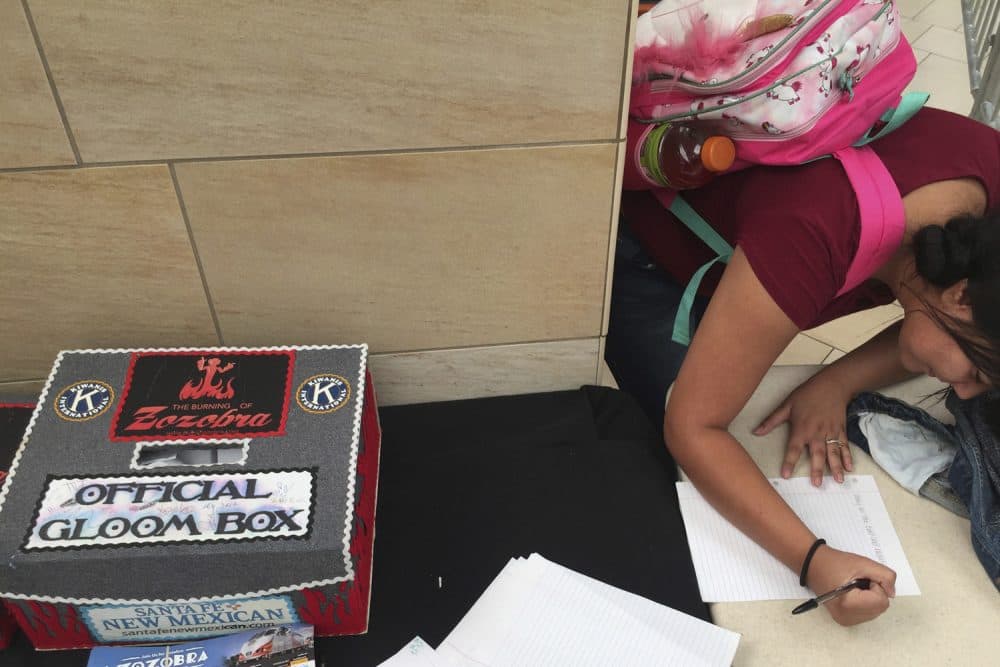Advertisement
Teen Anxiety: What Can Parents, And Kids, Do About It?
ResumeTeen anxiety in America is at record highs, and parents around the country are asking what they can do about it.

On Point tackled the subject on Thursday's show. Our inbox flooded. So we caught up with two of our guests who treat kids with anxiety to talk a little bit more about solutions and treatment.
The gold standard is called exposure therapy, and it goes against all our instincts: Don't try so hard to free yourself of anxiety. Live with it. It's part of life. The more you try to get rid of it and avoid it, the stronger it becomes.
"The treatment is counter-intuitive, and the parenting is counter-intuitive," Lynn Lyons, a New Hampshire therapist and author, told On Point. "Because you want to protect your child, and you want to back out, but that makes the anxiety stronger."
For a child who has anxiety triggered by dogs, then, exposure therapy's cure is... dogs. Exposing yourself to them, whether gradually or all at once, and not trying to banish the anxiety that comes along with it. By fleeing dogs, the brain learns that dogs are scary. By sticking around, despite the fear, the brain learns that they're actually not so bad, and neither is the fear.
"Exposure therapy is really retraining the brain," Lyons said.
Said Dr. Angela Neal, a psychologist and Kent State professor who studies and works on anxiety disorders among African-Americans: "It’s okay to be anxious. It's okay to be anxious, and here’s how you work through that anxiety."
Both Lyons and Neal suggested parents consult the Anxiety and Depression Association of America, whose website has a directory of therapists. Lyons also suggested the International OCD Foundation. Exposure therapy is for kids and adults, and works for both.
Neal said parents could get educated with the "Anxiety and Phobia Workbook" by Edmund Bourne, which she called a terrific resource. She's also written a book called "Soothe Your Nerves: The Black Woman's Guide to Understanding and Overcoming Anxiety, Panic, and Fear."
Exposure therapy can treat generalized anxiety disorder, panic attacks and social anxiety, Neal said. Her program also has an app that helps kids acknowledge their anxiety, and shift to something more positive: their own personal theme song.
While working on strategies like relaxation or breathing, "You can acknowledge, yes — I'm having anxious thoughts," Neal said.
For parents of anxious kids, their own signaling can also be a difference-maker, said Lyons, the New Hampshire therapist.
"You want to really pay attention to how you are conveying the need for certainty and comfort to your children," Lyons said. "The more that we step in and get in the way of independent problem-solving, the more that we don’t allow kids the room to figure things out and to feel some distress, the more that we’re interrupting the whole process of developing emotional resilience."
Lyons described "catastrophic" parenting that can breed anxiety: A catastrophic parent will tell their child to wear a helmet because "I saw a video of a kid, his head was split open and he has brain damage."
A healthier approach, Lyons said, is to leave the catastrophe out of it, while still being a parent.
"You offer and repeat safety instruction," — i.e., wear a helmet — "and you avoid the catastrophic outcome video," Lyons said.
This segment aired on October 19, 2017.